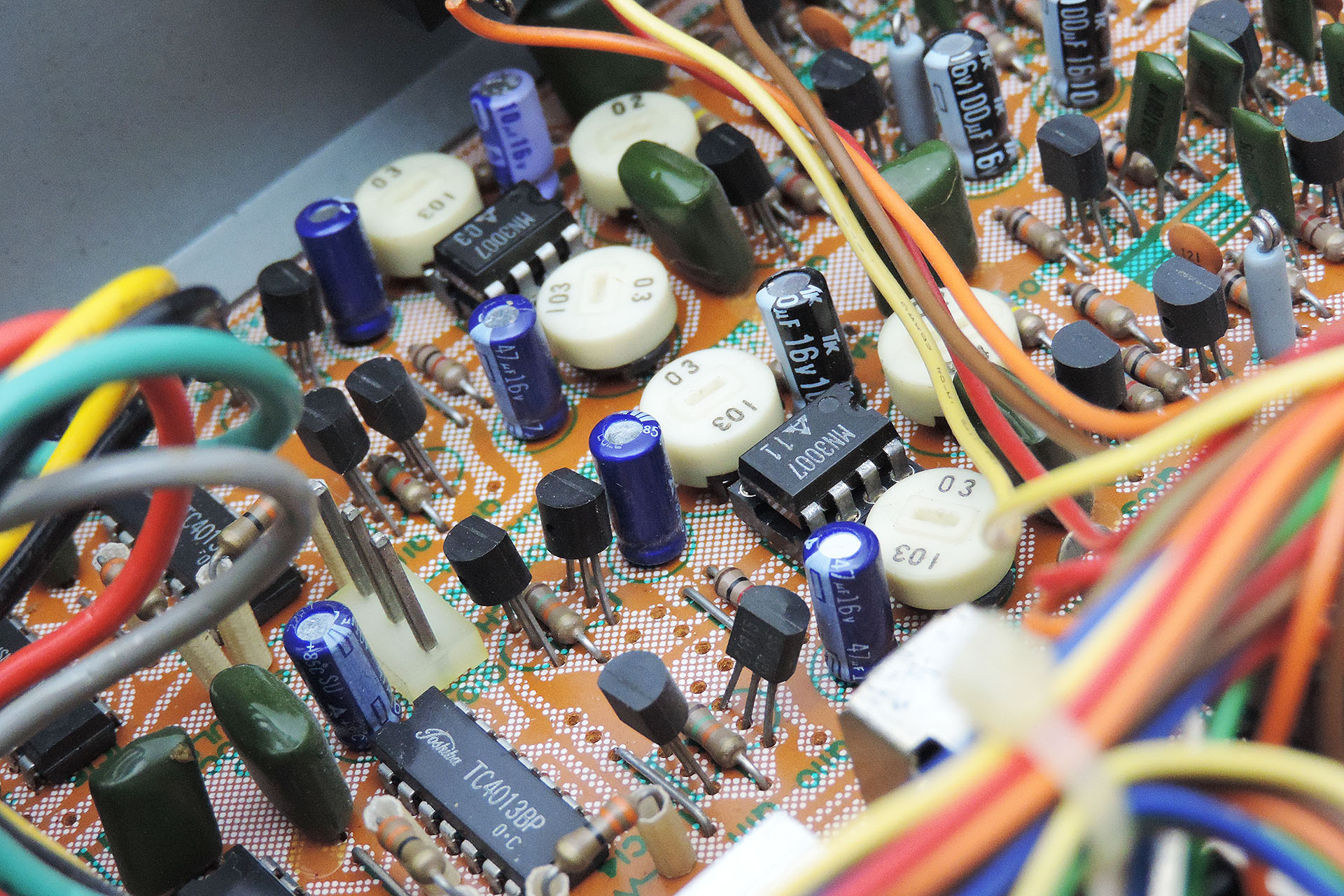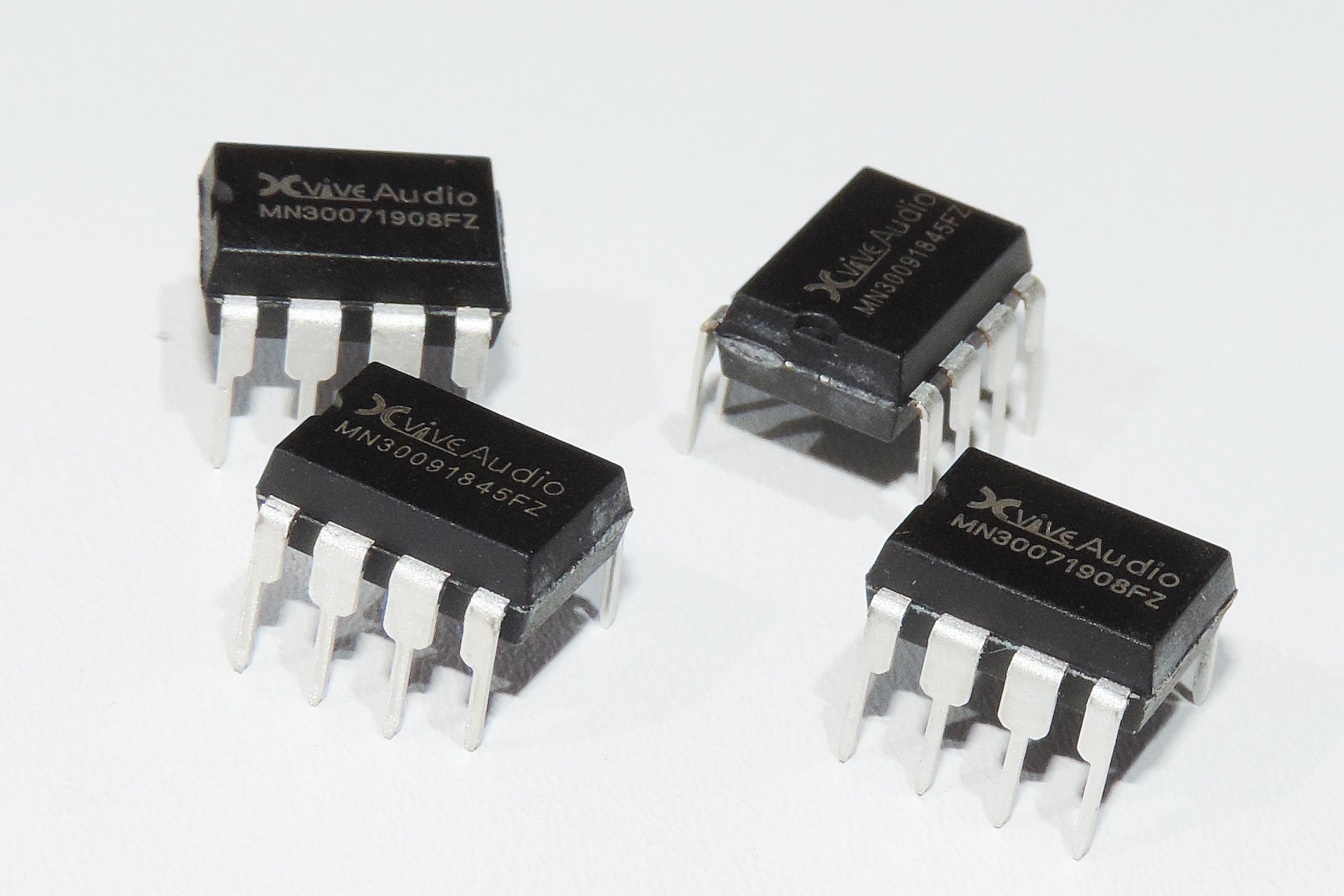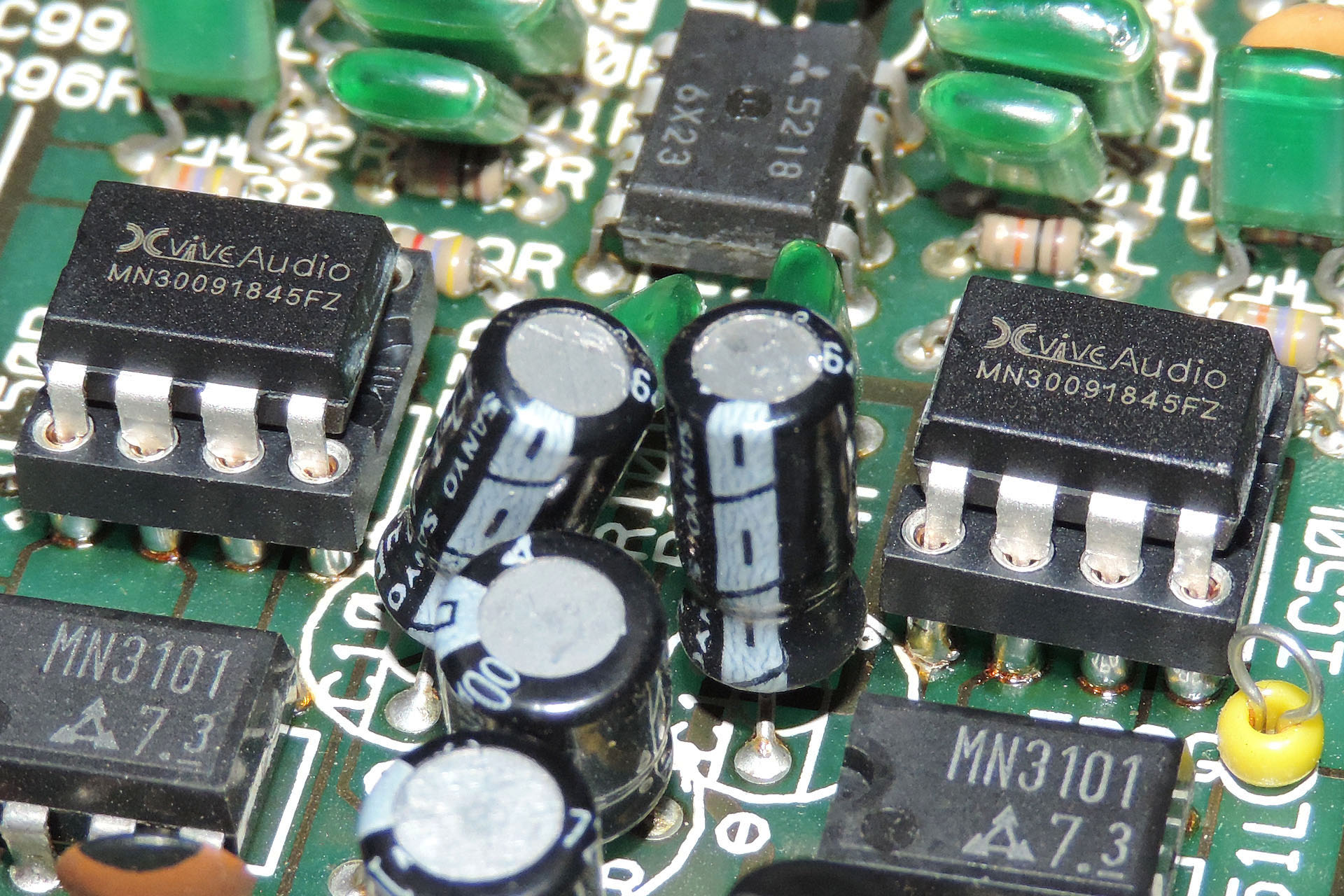After thirty-something years, many instruments that use the famous Panasonic designed MN3007 or MN3009 bucket brigade delay lines are now displaying symptoms such as distortion and increased noise. Buying new old stock (NOS) is risky. While doing so may fix the problem in the short-term, it should be considered that replacements chips will of course be from the same era and will therefore, soon give the same problems. What's needed is a chorus chip transplant with a contemporary alternative.
Well, luckily for us, Xvive produces clones of both the MN3007 and the MN3009. The term 'clone' in this context refers to the tone and effect produced and the fact that the chips are pin-for-pin compatible with the original devices. To the best of my knowledge, it does NOT refer to the fabrication of the chip which I understand, to be based on modern processes.

Initially, the sound when passing through the chorus, seems to contain artefacts. As the degradation of the substrate worsens, the chorus becomes increasingly noisy and can even have a kind of crunch to it (distortion). Do not however, confuse noise generated within the chip with LFO leakage into the audio path. This is quite different and can usually be tuned out via pre-set potentiometers in processors like the SBF-325.

Here's a list of some Roland instruments, processors and amps and the chorus chips that they contain:
- SDD-320 Dimension-D (2 x MN3007)
- SBF-325 (2 x MN3007)
- MKS-10 (2 x MN3007)
- MKS-20 (2 x MN3007)
- RD-1000 (2 x MN-3007)
- JC series guitar amps, like the JC-120 (1 x MN3007)
- VP-330 (2 x MN3009)
- SA-0 (2 x MN3009)
- Juno-6 (2 x MN3009)
- Juno-60 (2 x MN3009)
- Juno-106 (2 x MN3009)
- Juno-106s (2 x MN3009)
- HS-60 (2 x MN3009)
- Alpha Juno 1 (2 x MN3009)
- Alpha Juno 2 (2 x MN3009)
- JX-3P (2 x MN3009)
- JX-8P (2 x MN3009)
- JX-10 (4 x MN3009)
- MKS-30 (2 x MN3009)
- MKS-50 (2 x MN3009)
- MKS-70 (4 x MN3009)

Here are two of the four Xvive MN3009s that I recently installed into the top voice-board of a Roland MKS-70. High-quality turned-pin sockets are fitted before the chips are installed and the new replacement devices then simply plug into the sockets. This means that they can easily be removed without desoldering, anytime in the future,
In my humble opinion, the new devices from Xvive sound very solid and not airy like the aged original chips. With definition and detail, you'll defiantly hear a substantial difference in your tone perhaps resembling something closer to what your instrument sounded like when it was new.
I offer a full chorus chip transplant for many instruments, in my online store and the service is also included in some bundles like my Mega upgrade bundle for the Roland MKS-70.

